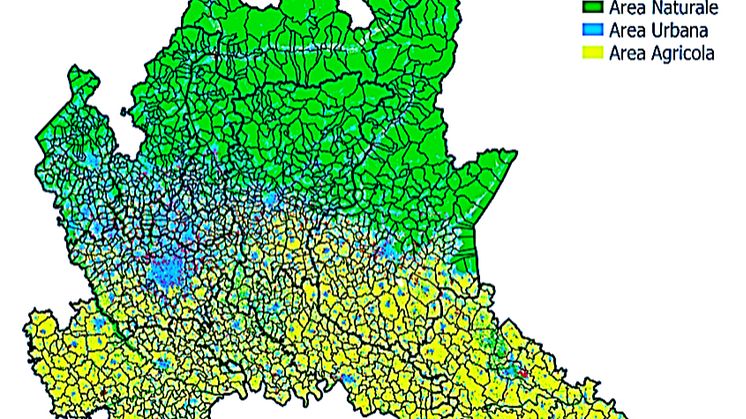
Press release -
Pollution: impact of agricultural activities on PM2.5 in Lombardy is comparable to that of urbanization, industry and transportation
A research study from Politecnico di Milano published in Chemosphere
Milan, 4th March 2024– A research study from Politecnico di Milano on the journal Chemospherehas quantified the impact of agricultural activities on the spatial distribution of fine dust (PM 2.5) in Lombardy, showing that it is comparable to the impact of other well known sources of pollution, such as urbanization, industry, and transportation.
Such comparable impact was found not only in the rural areas, but also when considering more densely populated areas.
In particular, the agriculture's contribution resulted correlated more to pollution spikes rather than to a baseline increase, but with a limited duration over time. Among the analyzed crops, while rice fields showed a minimal impact, corn and cereals fields showed a significant contribution to pollution.
These results has been obtained using an innovative framework and a data-driven model that includes the evaluation of the impact of the different land use on the spatial distribution of PM2.5 concentration, particularly suited for the analysis of agricultural land, with a higher precision compared to pre-existing models.
To this aim, both Earth observation data by satellites and atmospheric models of the Copernicus program were utilized to derive the PM2.5 concentration, while information on the land use were obtained from the open access database and the agricultural information system of the Lombardy Region. For the analysis, an innovative GEOAI (Geomatics and Earth Observation Artificial Intelligence) system composed by a three-steps architecture, that allows to measure and interpret spatial dynamics on a local scale and to compare effects of different land use on pollution, was utilized. Thanks to this new approach, it will be possible to generate new evidence on the pollutant concentration due to specific agricultural activities, such as fertilization and manure spills.
This research originated by the D-DUST(Data-driven moDelling of particUlate with Satellite Technology aid) project, funded by Cariplo Foundation, with the aim to evaluate the potential - in terms of operability, cost-efficacy ratio, and accuracy – of a systematic integration of non-conventional data into the traditional PM2.5 monitoring approaches based on ground stations, with a focus on satellite data and agriculture-related pollutants emission.
The project was conducted by professor Maria Brovelli and Dr Daniele Oxoli, from the Department of Civil and Environmental Engineering, in collaboration with professor Enrico Caiani and Dr. Lorenzo Gianquintieri, from the Department of Electronics, Information and Biomedical Engineering at Politecnico di Milano, with Dr. Santoni from Fondazione Politecnico di Milano and with professor Andrea Spinazzè from Università degli Studi dell'Insubria.
Topics
Politecnico di Milano is a scientific-technological university which trains engineers, architects and industrial designers.
The University has always focused on the quality and innovation of its teaching and research, developing a fruitful relationship with business and productive world by means of experimental research and technological transfer.
Research has always been linked to didactics and it is a priority commitment which has allowed Politecnico Milano to achieve high quality results at an international level as to join the university to the business world. Research constitutes a parallel path to that formed by cooperation and alliances with the industrial system.
Knowing the world in which you are going to work is a vital requirement for training students. By referring back to the needs of the industrial world and public administration, research is facilitated in following new paths and dealing with the need for constant and rapid innovation. The alliance with the industrial world, in many cases favored by Fondazione Politecnico and by consortiums to which Politecnico belong, allows the university to follow the vocation of the territories in which it operates and to be a stimulus for their development.
The challenge which is being met today projects this tradition which is strongly rooted in the territory beyond the borders of the country, in a relationship which is developing first of all at the European level with the objective of contributing to the creation of a single professional training market. Politecnico takes part in several research, sites and training projects collaborating with the most qualified European universities. Politecnico's contribution is increasingly being extended to other countries: from North America to Southeast Asia to Eastern Europe. Today the drive to internationalization sees Politecnico Milano taking part into the European and world network of leading technical universities and it offers several courses beside many which are entirely taught in English.
